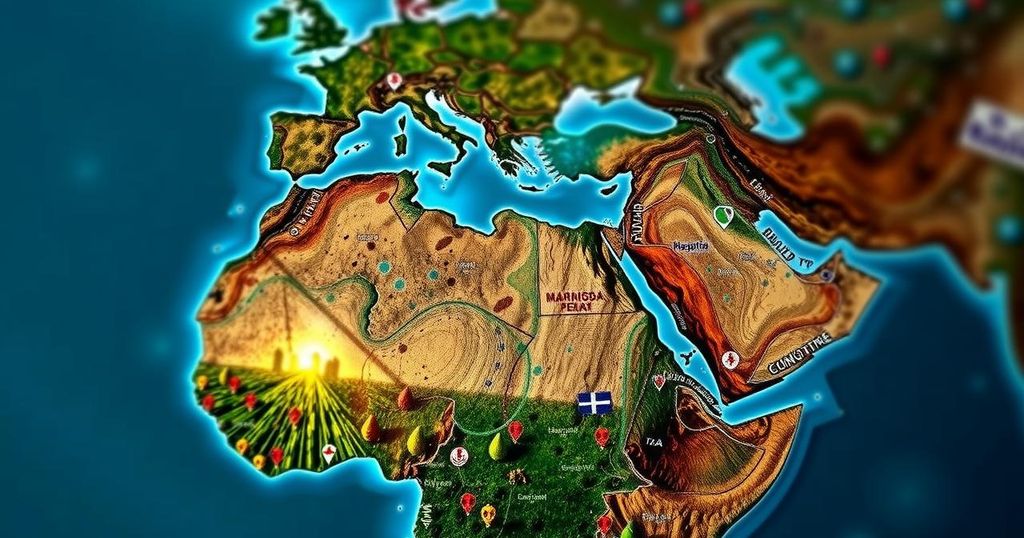Recent global updates include Egypt being certified malaria-free, Cuban citizens suffering from power outages due to Tropical Storm Oscar, opposition figures killed in Mozambique amidst electoral disputes, and WHO’s response to flooding challenges in South Sudan, affecting hundreds of thousands.
In recent global news, significant developments include Egypt’s certification as malaria-free, the impact of a tropical storm in Cuba, violent incidents in Mozambique, and the World Health Organization’s ongoing support for South Sudan amid severe flooding. The World Health Organization (WHO) has proudly announced Egypt’s achievement of being certified malaria-free, a remarkable milestone that concludes a long-term battle against the disease dating back thousands of years. WHO Director-General Tedros Adhanom-Ghebreyesus stated, “Malaria is as old as Egyptian civilization itself, but the disease that plagued pharaohs now belongs to its history and not its future.” Egypt now stands alongside the UAE and Morocco in the Eastern Mediterranean region as only the third nation to receive this prestigious acknowledgment, adding to the roster of 44 countries worldwide that have eradicated the disease. In a different part of the globe, the Caribbean nation of Cuba is grappling with widespread power outages affecting approximately 10 million citizens amid a slow-moving tropical storm named Oscar. Following several weeks of rolling blackouts, the latest storm has exacerbated the situation by threatening flooding across both urban and rural areas. UN Deputy Spokesperson Farhan Haq remarked, “The strong but slow-moving storm has generated significant rainfall in the eastern and central parts of Cuba over the past few days,” with the United Nations prepared to provide assistance as needed during this crisis. Meanwhile, unrest has erupted in Mozambique due to the brutal killings of two opposition figures, leading to calls for calm and a thorough investigation of the events following disputed electoral results. UN Secretary-General António Guterres emphasized the importance of peace, urging all involved to prioritize restraint and denouncing violence amid the tension. In South Sudan, the WHO is collaborating with local authorities to address the catastrophic effects of unprecedented flooding, which has jeopardized the health and safety of nearly 890,000 individuals. The floods, intensified by climate change, have submerged critical infrastructure, including healthcare facilities. The organization has dispatched emergency health kits capable of treating over 870,000 individuals to assist affected communities in this crisis. These developments highlight both remarkable achievements and serious challenges faced by nations globally, emphasizing the importance of continued support and cooperation in combating health issues and natural disasters.
Global health advancements and crises continue to shape the landscape of international affairs. Egypt’s status as malaria-free exemplifies successful national and international health initiatives. In contrast, the challenges Cuba faces with power outages during a natural disaster illustrate vulnerabilities in infrastructure. Furthermore, the political tensions in Mozambique reflect the ongoing struggles for democracy and political stability in several regions. South Sudan’s flooding crisis underlines the intersection of environmental factors and humanitarian challenges, necessitating urgent assistance from global health organizations. Together, these narratives encapsulate the complexities of global health, governance, and environmental stewardship.
In summary, the recent news cycle encapsulates both significant achievements and urgent crises globally. Egypt’s certification as malaria-free marks a historic health triumph, while Cuba’s power struggles amid Hurricane Oscar highlight vulnerabilities exacerbated by environmental factors. The tragic events in Mozambique call for political stability and accountability, and WHO’s efforts in South Sudan emphasize the necessity of international aid in addressing the humanitarian fallout of climate-related disasters. These developments collectively reflect the ongoing journey toward health equity, stability, and resilience in various regions.
Original Source: news.un.org






